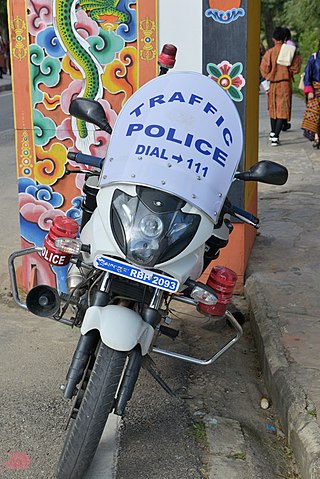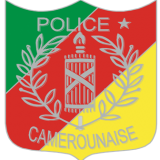Law enforcement in the Canary Islands consists of three security forces, the Local Police and the Civil Guard and Policía Nacional "Policia Local" & "Guardia Civil". While the former is characterised by blue markings on both uniforms and vehicles, the latter's vehicles and clothing is green, and due to the high level of tourism to the islands, both police forces possess control centres for a number of different languages.
Law enforcement in Madeira is part of the law enforcement in Portugal.

Law enforcement in Honduras is split among three law enforcement organisations.
Law enforcement in Panama is performed by the Panamanian Public Forces. The Public Force has several branches which are Panamanian National Police and the National Air Service (SENAN), National Border Service, and Institutional Protection Service that enforce law within their jurisdiction. Panama abolished its army in 1990, confirmed by a unanimous vote by the National Assembly of Panama for constitutional amendment in 1994. The constitutional amendment prohibit the creation of a standing military force but allow the temporary establishment of special police units to counter acts of "external aggression".

As in many other countries with a French colonial heritage, law enforcement in Benin was a responsibility primarily shared by a military police gendarmerie and a civilian "National Police." However, in January 2018, these forces were merged into a single force called the Republican Police of Benin.
Like many other countries with a French colonial heritage, law enforcement in Burkina Faso is a responsibility primarily shared by the gendarmerie and the police.

The Gendarmerie Nationale and the Police Nationale are the national police forces of Chad.
The law enforcement agencies of Madagascar include:

The Gendarmerie Nationale is the national police force of Mauritania. The gendarmerie is part of the Army and maintains posts in the urban and rural parts of the country.
Responsibility for law enforcement in Togo is primarily shared by the Police Nationale, the civilian national police, and the paramilitary Gendarmerie nationale togolaise.

The Royal St Christopher and Nevis Police Force is the police force responsible for law enforcement on Saint Kitts and Nevis. The force was formed in 1960, when it was a colony of Great Britain. The current Commissioner of the force is Ian Queeley.

Guatemalan law enforcement, mainly performed by the civilian-led National Civil Police of Guatemala(PNC), yet assisted by its military, which has a poor record with regard to human rights violations. During President general Otto Pérez Molina, elected in 2012, stepped up the use of military reinforcement in the country's law enforcement, which was introduced in 2005 as a 'temporary measure' yet lasted several electoral periods. During the country's civil war from 1960 to 1996, 200,000 people were killed and 45,000 forcibly disappeared.
Law enforcement in Nicaragua falls under the jurisdiction of La Policia Nacional of Nicaragua. They are in charge of regular police functions and sometimes work in conjunction with the Nicaraguan military, making it an indirect and rather subtle version of a gendarmerie.
Law enforcement in Paraguay is primarily the responsibility of the National Police of Paraguay.
Rwanda's legal system is largely based on German and Belgian civil law systems and customary law.

Law enforcement in the Democratic Republic of the Congo has historically been focused on furthering the state's aims with no regard for human rights. The Police nationale congolaise is the police throughout the territory of the Democratic Republic of the Congo. It was composed of between 110,000–150,000 officers as of 2010.
The law enforcement in the Republic of the Congo is monitored by two organisations Congolese national gendarmerie and the Congolese national police.
Djibouti, officially the Republic of Djibouti, is a country in the Horn of Africa. It is bordered by Eritrea in the north, Ethiopia in the west and south, and Somalia in the southeast. The remainder of the border is formed by the Red Sea and the Gulf of Aden. The main police force is the Djibouti national police and Djiboutian National Gendarmerie

Bhutan has a low crime rate. Incidents of petty crime are occasionally reported in the country. Violent crime is very uncommon. Some cases of drug abuse are reported; alcohol abuse is a problem. But in general, drug trafficking is low. The most serious threat to Bhutan's security is terrorism by different terrorist groups from neighboring countries illegally camped in the nation.
The People's Protection Brigades were a type of law enforcement organization in Marxist Ethiopia.








